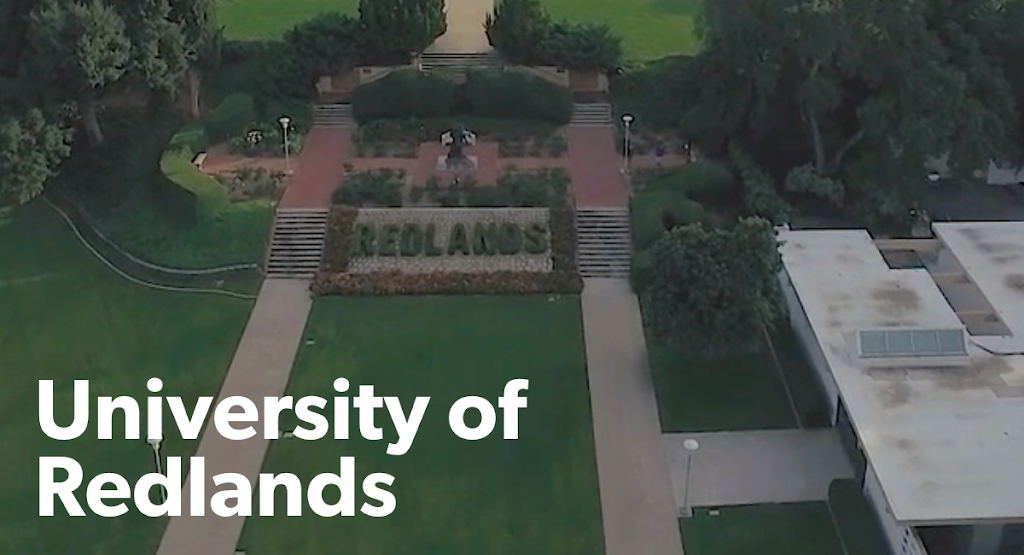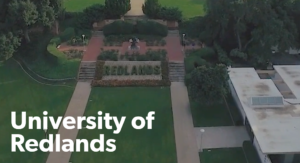The University of Redland offers a variety of educational programs, each with their own fee structure. The university offers both undergraduate and graduate programs, with the majority of the graduate programs having higher fees than the undergraduate programs. The university offers a diverse range of courses, with something to suit everyone.
Whether you are looking to study business, science, humanities or engineering, the University of Redland has a program that will fit your needs. The cost of education can be expensive, but the university offers a range of scholarships and bursaries to help students cover the cost. So whether you are just starting out in your education or you are looking to further your studies, the University of Redland has a program for you.
The following schedules list the principal expenses and regulations concerning the payment of fees for the 2021-2022 academic year (Fall and Spring semesters and May Term session).
Expenses are subject to change. When such changes are made, notice will be given as far as possible. Fees for the 2021-2022 academic year will be published during the summer of 2022.
Undergraduate
Full Year is considered 9 or more credit hours in the Fall semester and 9 or more credit hours in the Spring semester.
Full time for international students is a minimum of 12 credit hours per semester.
Graduate
Full Year is considered 9 or more credit hours in the Fall semester and 9 or more credit hours in the Spring semester. Part time is 6-8 credit hours per semester.
Full time for international students is a minimum of 9 credit hours per semester.
Graduate Assistantships
Graduate assistantships are available. Contact the appropriate department for application and award information.
TUITION, FEES, AND EXPENSES
Numbers in columns indicate dollar amounts.
Undergraduate Tuition
Full Year: $53,716
Half Year: $26,858
May Term
Excess residential (on-campus) May Term course fees will be charged after 2 residential May Term courses. See May Term Chapter for details.
May Term, per credit: $1,679
Special Status Undergraduate
Shot-time tuition, per credit: $1,679
Individualized Study, per credit: $1,679
Undergraduate Auditing, per credit
Degree candidates: $1,679
Non-degree students: $225
High school students: $120
Graduate Tuition
Music and Communicative Disorders
Per credit: $1,168
Graduate Individualized Study
Per credit: $1,168
Graduate Auditing, per credit
Degree candidates: $1,168
Non-degree students: $225
Graduate GIS Fees
Per program: $47,277
Per credit: $1,314
Project Extension Fee*: $1,314
* If a candidate cannot complete the Major Individual Project (MIP) within one term following the last term of the program, this fee will be charged for each term required to complete the MIP.
Technology/Laptop Fee–MS GIS and MGIS
One-time fee: $2,000
Full-time graduate, per term materials fee: $500
Part-time graduate, per term materials fee: $330
The following table provides an overview of the main fees associated with studying at the University of Redland:
| Meal Plan | Dining Dollars per Term | Fall | Spring | May | Total without May Term | |
| 10 MPW (Meals per Week)1 | $250 | $1,668 | $1,668 | – | $3,336 | |
| 14 MPW (Meals per Week) | $250 | $1,961 | $1,961 | – | $3,922 | |
| 19 MPW (Meals per Week) | $250 | $2,220 | $2,220 | – | $4,440 | |
| 100 Block2 | $250 | $1,303 | $1,303 | – | $2,606 | |
| 75 Block3 | $250 | $979 | $979 | – | $1,958 | |
| 50 Block4 | $75 | – | – | $400 | – |
Meal Plan Fees
Room Fees
| Room Type | Annual Rate | ||
| Residence Halls | |||
Air-Conditioned Residence HallsNon-Air Conditioned Residence HallsDouble-Hall Bath$11,376$10,804Double-Suite Bath$11,948$11,376Double-Private Bath$12,514$11,948Triple-Hall Bath$9,100$8,646Triple-Suite Bath$9,562$9,100Triple-Private Bath$10,014$9,562Quad-Hall Bath$6,826$6,486Quad-Suite Bath$7,166$6,826Quad-Private Bath$7,510$7,166Large Single-Hall Bath$15,926$15,132Large Single-Suite Bath$16,726$15,926Large Single-Private Bath$17,522$16,726Small Single-Hall Bath$13,652$12,970Small Single-Suite Bath$14,338$13,652Small Single-Private Bath$15,016$14,338
Air Conditioned Residence Halls:
California, Cortner, East, Founders, Grossmont, Haven, Holt, Melrose, Merriam, North, Williams
Non-Air Conditioned Residence Halls:
Anderson, Bekins, Fairmont
Apartments and Organizational Houses:
| Room Type | Annual Rate |
| Brockton Apartment-Single | $14,338 |
| Grove Apartment-Double | $13,142 |
| Grove Apartment-Single | $15,528 |
| Organizational Houses | $11,376 |
Graduate GIS-Monthly Rate
| Double-Large | $1,049 |
| Double-Small | $977 |
| Family-Large | $1,853 |
| Family-Small | $1,726 |
| Single-Large | $1,452 |
| Single-Small | $1,383 |
May Term Housing
| Room Type | Term Rate | ||
| Selected Halls/Rooms | $400 | ||
Room and Board Contract Cancellation
The Room and Board Contract Cancellation Fee Schedule is designed to recover a percentage of the University’s housing costs when a student cancels his/her room contract. The schedule also is designed to motivate students to give the University as much notice as possible of their decision not to return so that other students may be accommodated. All cancellation fees are based on the date the Cancellation Form is received in the Office of Residential Life, not on the student’s last date of occupancy.
Late cancellation fee—room and board contract: $500
Admissions Deposit, not refundable
Non-refundable deposit: $350
Each Arts and Sciences student admitted to the University of Redland is required to pay a $350 non-refundable deposit. This deposit is applied to the student’s first semester tuition charges.
Application for Admission
A completed Application for Admission, available from the Office of Admissions, must be filed by all applicants seeking admission to the University of Redland. The application must be accompanied by the appropriate application fee and official transcripts of all academic work attempted.
Graduate Application Fee: $60
Undergraduate Application Fee: $40
In order to expedite evaluation of your file, please submit all required documents as early as possible. The University of Redland does not have an admissions deadline but students are encouraged to submit their applications and required documentation by February 1 to be considered for admission and scholarships for the fall semester, and by October 1 to be considered for admission and scholarships for the spring semester. Admission after these dates will be granted on a space-available basis.
International Application Fee: $100
All applicants who are not U.S. citizens or permanent residents must submit a $100 international application fee along with their Application for Admission. This fee is non-refundable and is not applied to tuition charges.
Official Transcripts
An official transcript is one that arrives at the University of Redland in a sealed envelope from the issuing institution. The transcript must bear the official raised seal of the institution and the signature of the Registrar or other appropriate officials. If your transcripts are issued in a language other than English, you must submit both the original transcript and a certified English translation.
Credit Evaluation Fee
A $40 fee will be charged for each course submitted for transfer credit evaluation. This fee is in addition to any other application or transcript fees.
Tuition and Fees
The university reserves the right to change its tuition and fees without prior notice. However, every effort will be made to keep increases to a minimum. All charges are due and payable in U.S. currency. Students who have not paid their tuition and fees in full by the published deadline will have a hold placed on their account which will prevent future registration and release of transcripts and diplomas. In addition, a late payment fee of 1.5% per month (18% annually) will be assessed on any unpaid balance.
Associated Students Fees
Collected by the University to support ASUR and its sponsorship of various activities.
Regular student, per year: $350
Part-time student, per semester: $175
Health Services Fee
Covers the cost of basic medical services provided by the Student Health Centre. The fee also provides access to counselling services and health education programs.
Regular student, per year: $450
Part-time student, per semester: $225
Technology Fee help support maintenance and development of the University’s computer network, email system, instructional technology resources, and other related services. This fee is mandatory for all students.
Regular student, per year: $600
Part-time student, per semester: $300 dormitory or room charges for any period during which the student was not in actual occupancy of his/her room due to suspension from the University.
Degree Verification Fee
Per Occurrence: $10
OFFICIAL WITHDRAWAL
A withdrawal is considered official for all students when written notification is received by the Registrar’s Office. For undergraduates, a student may officially withdraw through the 60% point in each semester to receive a “W” grade for each course; after the 60% point, a grade of “F” is earned for each course. For graduate students, a student may officially withdraw through the 50% point in each semester to receive a “W” grade for each course; after the 50% point, a grade of “F” is earned for each course. Determination of the official withdrawal date will be made by the Registrar’s Office based on notification received from the student.
Students who leave the University without officially withdrawing will receive failing grades in all courses (“F”), regardless of their academic standing at the time of their departure.
Students who officially withdraw may be eligible for a refund of tuition and other charges, as described in the “Refunds” section below. However, students who do not officially withdraw will not be eligible for any refund.
Unauthorized Withdrawal
Students who leave the University without officially withdrawing or notifying their instructors (including those who are expelled or suspended) will receive failing grades in all courses (“F”), regardless of their academic standing at the time of their departure. These grades will be permanent and will appear on the student’s transcript. In addition, the student will forfeit all claims to a refund of tuition and other charges, as described in the “Refunds” section below.
REINSTATE AFTER WITHDRAWAL
Students who wish to return to the University after an official withdrawal must submit a new application for admission and meet all current admission requirements. In addition, they must pay a $40 reactivation fee. If they are readmitted, they will be charged the prevailing tuition and fees at the time of their readmission. They may also be required to complete additional coursework to make up for any work that was missed while they were away from the University.
TRANSCRIPT FEE
A transcript of a student’s academic record is issued only at the written request of the student. The first two transcripts are provided without charge; each additional transcript costs $5. Transcripts will not be issued for any student who has an outstanding financial obligation to the University.
Refunds
Students who officially withdraw from the University may be eligible for a refund of tuition and other charges, as described below. All refunds are paid according to the schedule below and are based on the date that written notification is received by the Registrar’s Office. Written notification may be in the form of a withdrawal form, letter, or email. Notification by phone is not accepted.
For students withdrawing prior to the first day of class:
100% refund of tuition and mandatory fees
80% refund of room and board charges
For students withdrawing on or after the first day of class:
No refund of tuition or mandatory fees
80% refund of room and board charges
Students who are expelled or suspended from the University are not eligible for any refund.
All other charges (e.g., course fees, etc.) are non-refundable.
Please note that refunds may be subject to federal, state, and institutional regulations and policies. For more information, please contact the Student Financial Services Office.
GRADE FORGIVENESS POLICY FOR UNDERGRADUATE STUDENTS
Policy Statement
Undergraduate students may petition for forgiveness of grades received in up to 16 credit hours of coursework, provided certain criteria are met. This policy applies to courses taken at Stony Brook as well as courses taken at other institutions and transferred to Stony Brook.
Grade Forgiveness is a policy whereby a student may petition to have the grades of up to 16 credit hours of coursework excluded from computation of the grade point average (GPA). A student may exercise this option no more than two times during his or her undergraduate career at Stony Brook.
Grade Forgiveness does not remove the original grades and courses from the student’s academic record; it is only for the purpose of recalculating the GPA. The original letter grades and courses will continue to appear on the transcript with a notation that “Grade Forgiven” has been applied. If a course is repeated, both the original grade and the repeated grade will appear on the transcript, with a notation that “Grade Forgiven” has been applied to the original grade.
Courses taken on a Pass/No Credit basis may not be forgiven. In addition, courses taken at other institutions and transferred to Stony Brook may not be forgiven.
To be eligible for Grade Forgiveness, a student must:
Have completed at least 12 credit hours at Stony Brook since being admitted as a degree candidate; and
Have a cumulative GPA of 2.0 or higher; and Obtain the approval of an academic advisor and the department chairperson of the department in which the course(s) was taken.
Returning Students
Students who have been away from the University for one or more semesters (not including summer sessions) and who wish to return must submit a Petition for Reinstatement to the Registrar’s Office. The petition must be approved by the student’s academic advisor and the department chairperson before the student will be allowed to register.
Temporary Absence
Students who wish to take a leave of absence from the University for one or more semesters (not including summer sessions) must submit a Leave of Absence form to the Registrar’s Office. The leave of absence is granted for a specific period of time and is not automatically renewed. A student who wishes to extend a leave of absence must submit a new Leave of Absence form.
A student on a leave of absence is not considered to be enrolled at the University and is not eligible for any of the privileges or benefits of enrollment (e.g., use of facilities, access to services, etc.). In addition, a student on a leave of absence is not eligible to register for courses, either at Stony Brook or another institution.















